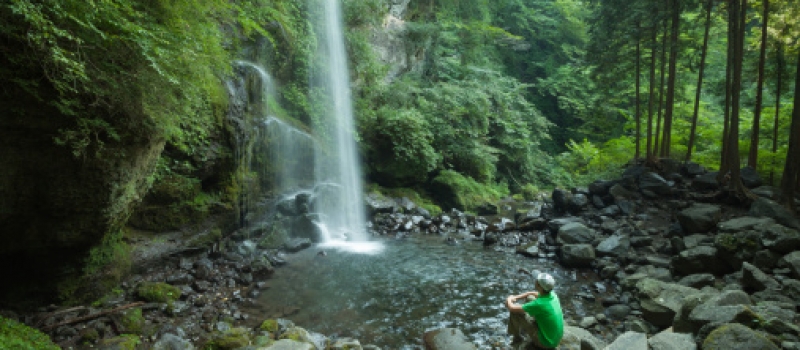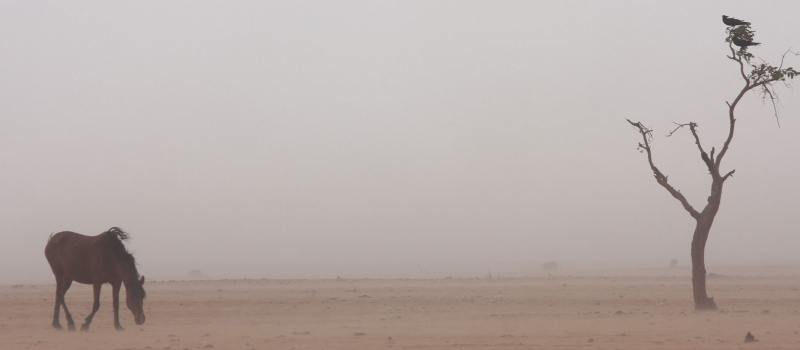
The global water cycle, also known as the hydrological cycle is a fundamental part of our lives, yet we often overlook its importance.
To many, the way the water cycle functions seems far removed from daily life. However the more that humanity recognises that it is central and irreplaceable, the greater our chances are for making the right decisions and thus living healthy lives. By prioritising the water cycle, we establish that the natural elements of this cycle are also important. Therefore there is greater emphasis upon preserving them. This approach is so crucial in the case of the ecosystems, which regulate the global water cycle, because they are presently being destroyed at an alarming rate.
“Ecosystems and landscapes sustain water resources. Forests play a major role in the water cycle, ensuring quantity, quality and stability of water for human use.”
Download: FAO/HLPE, Water for Food Security and Nutrition, 2015.pdf
Now there is increasing attention being focused towards water management. However this is mainly directed towards consumption, sanitation, recycling and water harvesting in specific localised areas. Unfortunately the conservation of the water cycle; as a whole, is being left unattended to. The three phases of the water cycle, that create both our freshwater and climate systems are often looked at as if they were separate issues. Yet this is a very limited and dangerous approach and it creates a lot of extra confusion. Therefore because no technology can replace it, all the natural elements of the global water cycle need to be safeguarded.
“The water-related problems facing society today are too complex for any handful of individual scientists or agencies to manage alone. An unsystematic approach to these problems, carried out with the vague hope that somebody somewhere will fit all the puzzle pieces together, will not be effective.” (USGCRP, A plan for a new science initiative on the global water cycle, chapter 2, 2001)
Maybe it is partially due to this limited approach to water management that humanity has been able to cause the environmental damage that has so severely destabilised the water cycle worldwide. However whatever the cause, it is now clear that there needs to be a change in the general approach regarding water and this pivotal, life sustaining cycle. This does not mean that all the intricate details of this cycle need to be understood by everyone. However there is one area, concerning this cycle, where far greater general awareness is required. This is in the area of endangered ecosystems.

The fact is, the global water cycle is dependent upon forested ecosystems in order to continue functioning. They perform an unquantifiable number of services and now they need protecting, conserving and restoring.
“Vegetation cover is influenced by the climate. Conversely, vegetation plays an important role in determining the partitioning of the energy and water inputs at the lower boundary of the land-atmosphere system thus influencing the surface hydrological processes and, consequently, the climate.”
Richard St. Barbe Baker is a shining example of someone who whole heartedly devoted his life to protecting and restoring forests. The positive impacts of these efforts can be seen from space.
The importance of ecosystems is not new information but unfortunately it is not widely understood or prioritised in planning and decision-making.
“Land-use planning and the sustainable management of forests, wetlands, mountains, oceans and coastal areas are important elements of the equation, since water and the water cycle are
fundamental for all processes occurring in the biosphere.”
Download: Comprehensive Assessment of the Freshwater Resources of the World, UN Report, 1997.pdf
Unfortunately the majority of forested ecosystems have been substantially degraded worldwide. According to the FAO, around the world forests are been cut by approximately 13 million hectares per year. This means that between 2006 and 2014 approximately 104 million hectares have been cut down. This is still continuing and jeopardizes all life on Earth. Mixed mountain forests, which are essential for the functioning of the global water cycle have been depleted on an enormous scale worldwide. They need restoring as a matter of urgency, if we are to have adequate supplies of fresh water to support all life on Earth
“Most people assume that global warming is caused by burning oil and gas. But in fact between 25 and 30 percent of the greenhouse gases released into the atmosphere each year – 1.6 billion tonnes is caused by deforestation.”
This is seriously threatening the whole worlds freshwater supplies and climate.
“Reserving water for the healthy functioning of ecosystems is sometimes seen as far less important than providing all the water that humans demand. In recent years, however, an understanding has emerged on the need to maintain ecosystem health not just for ethical reasons, but also because of the very practical benefits, sometimes called ecosystem services, that are provided to humans.”
Download: Comprehensive Assessment of the Freshwater Resources of the World, UN Report, 1997.pdf
It is time that we take a fresh look at how we think about fresh water, the global water cycle and how we take care of the global ecosystems that enable this cycle to perform it’s regenerative functions. The healthy functioning of this cycle is what has provided the quantity and quality of fresh water needed, for various life forms to evolve and live upon Earth.
Because we cannot live without fresh water, we need to do everything possible to make sure that these ecosystems are safeguarded and restored. All of evolution is at risk if we don’t.
“The local phenomena that affect local water supply and hydrological extremes phenomena with the greatest impact on society and ecosystems must be understood in the context of the global system. This scientific understanding can contribute to more effective land and water resource management and hazard mitigation strategies,”
Download: USGCRP, A plan for a new science initiative on the global water cycle, chapter 1, 2001.pdf
